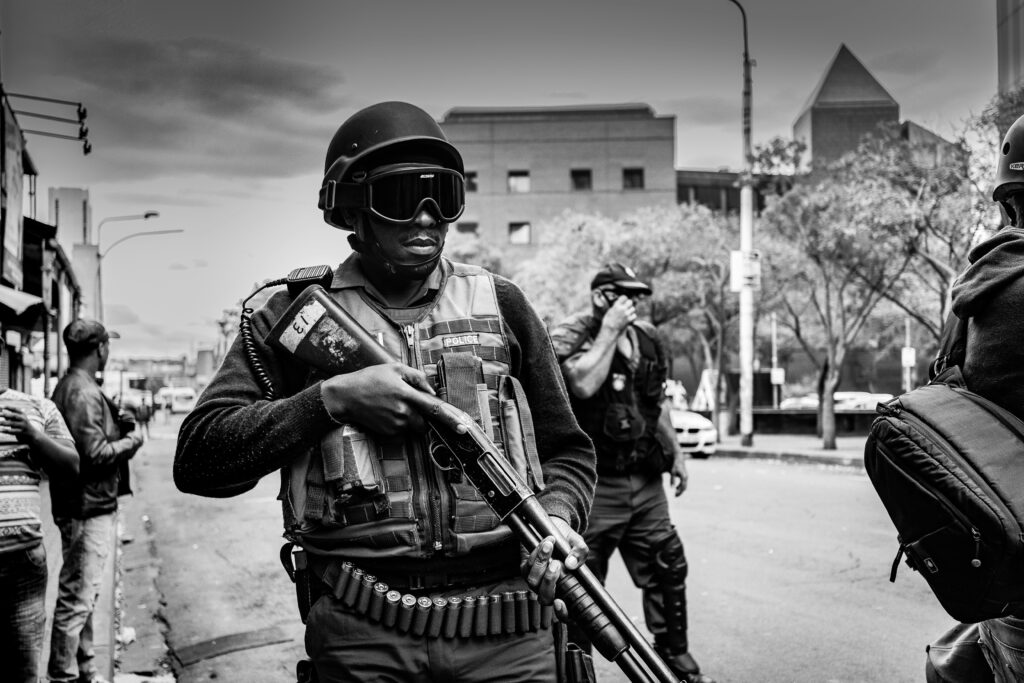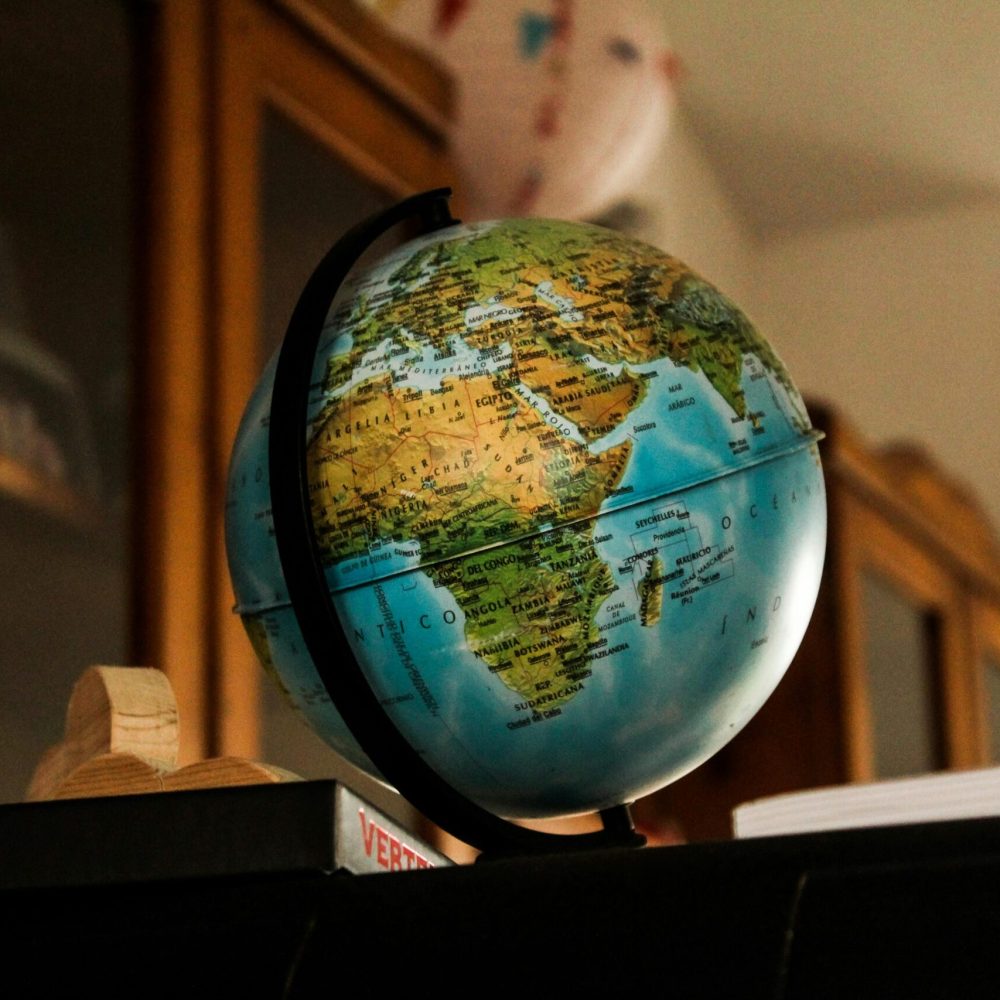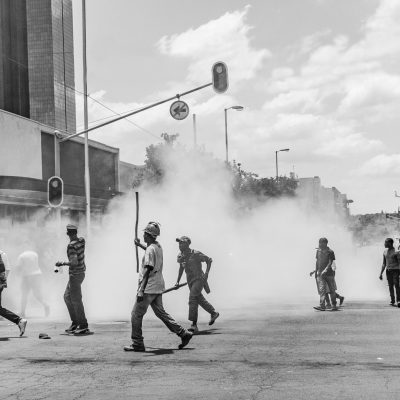Coup d’etats in Africa
Why They Keep Coming Back!
In the heart of Africa lies a paradox of political instability fueled and propelled by military coups. This phenomenon is more frequent in Africa than anywhere else in the world. It has been suggested by Powell, Reynolds, and Chacha that the two-year period between 2015 and 2017 was the only period since decolonization that the continent did not experience any form of coup d’état. This break from coups ended in November 2017, when President Robert Mugabe of Zimbabwe was removed from office.
According to the 2017 Merriam-Webster dictionary, the term “coup d’état” literally means “a stroke of state” or “blow of state.” The Oxford Dictionary has defined a coup as “a violent and immediate seizure of state power, usually by armed forces, and with the implication of being undemocratic and unconstitutional.” Coups are undertaken by a small number of military personnel.
The kinds of coups witnessed on the continent can be viewed from institutional, constitutional, and military perspectives. These differences are important in highlighting that amidst the emergence of coups involving bloodshed and guns are several others that also do not involve the use of the barrel.

From 1950 to 2023, the world witnessed 492 coup attempts. Astonishingly, 220 of these occurred in Africa. In a span of over seven decades, 45 of Africa’s 54 nations experienced a coup, whether attempted or successful. To break down the figures and provide more clarity, according to Jonathan Powell and Clayton Thyne, of the 492 coup attempts globally between 1950 to 2023, 245 were successful and 247 were unsuccessful. As mentioned already, Africa saw 220 of them, in 45 out of the 54 countries on the continent, of which 109 were successful and 111 failed. Latin America follows with a modest 146 attempts, with 70 successful and 76 unsuccessful. Within the same period, Europe saw 17 attempts, and South Asia, 16 attempts. So, the question is, why are there so many coups in Africa? What are the causes of these coups?
The re-emergence of democracy on the continent in the 1990s was seen as one of the solutions to coups on the continent. However, the last three years alone saw seven successful coups in Gabon, Niger, Mali, Guinea, Sudan, and Burkina Faso, occurring within the geographical area that scholars have called the coup belt. More so, of the 27 coups that happened since 1990, 21 occurred in French colonies as reported by Dixon Gary. This also raises questions regarding the role of France in all these.
Despite these staggering numbers, it is not out of order to admit that coups in Africa have decreased in numbers; however, there is an increasing rise in effectiveness attached to them, as the number of successful coups has recently outweighed the number of unsuccessful coups. Coups have become much more effective and difficult to deal with also, exemplified by the numerous struggles that the Economic Community of West African States (ECOWAS) have had to navigate. Regional bodies like ECOWAS face significant challenges in preventing and responding to coups. They are usually hampered by political and economic complexities.
However, to answer the question about why they keep coming back, Welch (1967) provides important insights. According to him, there are three important factors contributing to the reemergence of the phenomenon in Africa: a rise in popular political engagement, weak traditional authorities, and centralized power. Coups often occur where power is heavily centralized, and institutions are weak. The military, seeing itself as a stabilizing force, steps in to “correct’” the situation.
However, to understand how and why these corrections occur, Africa’s historical, political, economic, and social fabric must be assessed.
The Historical Context
Attempting to explain the causes of coups on the continent is a daunting task due to the diversity in the profile of coup-makers, the countries, and the myriads of responses from the population. According to the Institute of Security Studies 2023 reports on the Peace and Security Council,
“the post-colonial era was supposed to be Africa’s renaissance—a time to rebuild and flourish. However, the transition from colonial rule to self-governance was fraught with challenges. As African nations gained independence, many inherited fragile political systems from their colonial rulers, systems that were not designed to foster stability.”
The political structures inherited in the post-colonial era were weak and had been largely argued to be alien to Africa. colonial legacies left African countries with weak institutions and deep ethnic divisions. These new states struggled to establish effective governance, often leading to power vacuums filled with coups.
Furthermore, earlier coups were conducted on ethnic lines. The story of ethnicity in its primary form is an issue of a historical and colonial undertaking. Ethnicity has been one of the factors for politics in Africa during the early post-colonial days. Thus, in some instances, one ethnic group will be seen attempting to overthrow an incumbent of a different ethnic group. Christian Houle and Cristina Bodea in 2017 argued that
“large income and wealth disparities between ethnic groups accompanied by within-group homogeneity increase the salience of ethnicity and solidify within-group preferences vis-à-vis the preferences of other ethnic groups, increasing the appeal and feasibility of a coup.”
Although this relates to income and wealth inequality, it feeds into the broader picture of ethnic groups and in-group influences on coups

The continent, Africa.
The Failure to Achieve the Promises of Democracy
As recent as the 1990s, the continent saw massive and “aggressive attempts” at the promotion of democracy. It was thought that the era of coups would phase out. The numbers have indeed decreased. However, there have been 27 coups on the continent since then. Countries like Gabon, Sudan, Mali, Guinea, and Burkina Faso, within the so-called “coup belt,” have become hotspots of military takeovers. The recent takeovers have been attributed to transitions, elections, and democracy, which is a bit ironic. Some of these military rulers, before taking over or when they take power, cite that they are motivated by poor democratic or electoral developments. Adeoye O. Akinola and Ratidzo Makombe observed that:
“Colonel Assimi Goïta, the Malian military leader, took advantage of public dissatisfaction with the parliamentary election that was reportedly manipulated and the government’s inability to restore order and protect the civilian population from constant attacks by violent local armed groups and Islamic extremists.” Also, “in March 2021, the attempted military coup that took place in Niger was aligned with tensions in the country from a presidential electoral run-off in February 2021.”
Corruption
The past three years have been particularly turbulent. In quick succession, nations like Gabon, Niger, and Sudan witnessed the overthrow of their governments. It has been widely argued that these coups are often the result of deep-seated issues such as economic hardships and corruption. Leaders fail to address the needs of their people, creating disillusionment and unrest. In Mali, once again, Colonel Assimi Goïta capitalized on widespread public dissatisfaction with the government. Corruption, electoral fraud, and the failure to protect civilians from insurgent attacks culminated in a military coup that was celebrated by many Malians.

Emily Fornof and Emily Cole of the United States Institute of Peace in 2022 asserted that “weak democratic institutions and corruption have further eroded Malians’ faith in their government as it struggled to provide basic services.” This is important as when citizens become dissatisfied with governments, especially due to the assumption that leaders are living lavishly while the rest of the population are struggling, it becomes increasingly difficult for them to oppose coups and, in some instances, tacitly call for them. Joshua Olusola and Suleiman Oshobugie highlight that indeed, especially anti-corruption laws that are not optimally enforced serve as catalysts for coups to occur. In Burkina Faso, under Blaise Compaore, a patronage-based system facilitated widespread petty corruption. A parliamentary inquiry revealed the loss of a billion dollars due to corruption and mismanagement in the mining sector over a decade, contributing to Compaore’s ousting (Bonkoungou et al., 2016; Hilgers and Loada, 2013).
In Gabon, the Bongo family, who ruled for over 50 years, are accused of massive embezzlement and misuse of public funds. The family accumulated extensive wealth, including properties worth millions in Washington D.C. and luxury assets in France, while a significant portion of the population lives in poverty (Freudenthal et al., 2020; Levin and Coburn, 2010). In Sudan, Omar al-Bashir ruled from 1989 to 2019, seizing power through a coup and later becoming president. He was accused of embezzling $9 billion, with a portion allegedly stashed in London banks. He was eventually sentenced to two years for corruption-related charges (BBC, 2019; CNN, 2022; Sherwell, 2010). In Mali, former President Ibrahim Boubacar Keita’s government was accused of corruption immediately following his arrest in August 2020. I agree that there are some countries that may rank higher in terms of corruption than those mentioned. However, in the analysis of coups, the role of corruption cannot be ignored.
Economic and Social Factors
Furthermore, African countries often grapple with severe economic challenges, from poverty to unemployment, which exacerbate political instability. Economic mismanagement and corruption erode public trust in the government. When people are struggling to survive, they become more susceptible to supporting drastic changes, even if it means a military takeover. High youth unemployment is particularly destabilizing. Frustrated and disillusioned young people see little hope in the current system, making them more likely to support or even participate in coups. Additionally, the youth, facing unemployment and poverty, often support coups in the hope of economic improvement. High illiteracy rates also make populations susceptible to military propaganda. Constitutionally elected governments, perceived as corrupt and repressive, lose legitimacy, paving the way for military intervention. The failure of national security forces to manage public unrest further invites military involvement.
The Role of Foreign Influence
A significant factor in Africa’s coups is the lingering influence of former colonial powers. France has been accused to be an influential factor in several of the coups in its former colonies. Of the 27 coups since 1990, 21 occurred in French-speaking countries. France’s involvement in African politics has been a double-edged sword. While they provide military and economic aid, their interference often undermines local governance and fuels instability. The presence of foreign troops and the perception of neo-colonialism create tensions and sometimes spark nationalist sentiments that manifest in military coups. African and French observers have contended that the “Françafrique” policy may be coming to an end. Many continue to question France’s true intentions in Africa. Jamey Keaten and her colleagues, writing for the Associated Press in 2023, posit that France did not intervene in the coup in Gabon when the deposed leader called for help, despite France having hundreds of troops in the country. Similar situations occurred in Niger, where France had a standoff with the coup makers regarding the legitimacy to rule. Also, Mamady Doumbouya not only trained in France but served in the French military. This situation further complicates France’s “suspected” role in coups in Africa due to its earlier interventionist record in its past colonies.
Brief Highlights of Recent Cases

In Mali, the military took advantage of widespread dissatisfaction following a disputed parliamentary election. Public anger over corruption and the government’s failure to quell Islamist insurgencies paved the way for Colonel Goïta’s coup. Keita’s government was seen as corrupt and incompetent. The military promised to restore order and integrity, which resonated with many Malians.
In Niger, a failed coup attempt in March 2021 was closely linked to tensions from a controversial presidential election. Despite the coup’s failure, the incident highlighted deep-seated electoral and political grievances. The electoral process was fraught with allegations of fraud. The attempted coup was a symptom of the broader discontent with the political system.
Chad’s coup was triggered by the battlefield death of long-time President Idriss Déby. His son, General Mahamat Déby, was swiftly installed by the military, sparking protests and claims of a military takeover. People were outraged by the undemocratic transfer of power. It was seen as a way for the Déby family to cling to power and continue their control.
The Human Cost
While the reasons for coups are complex, their impacts are uniformly devastating. Political instability often leads to violence, economic decline, and human suffering. In Burkina Faso, government control extends to only a small fraction of the country, with vast areas left vulnerable to insurgents and terrorist groups. This insecurity forces millions into displacement and poverty. The constant threat of violence and the lack of government presence make life extremely difficult for the average citizen. Coups only add to the chaos.
The Path Forward
The focus of this piece has been on coups in Africa. But I will briefly touch on how they can be prevented, which will be extensively discussed later. Preventing future coups requires addressing the root causes: strengthening institutions, promoting economic development, and fostering inclusive governance. Education and youth empowerment are key to building resilient societies.
Africa needs long-term solutions that focus on building robust institutions and creating opportunities for all citizens, until then it appears the shadows of coups will continue to loom over the continent.
References
1.Powell, J., Reynolds, A., & Chacha, B. (2017). Coup d’Etat in Africa. African Affairs, 116(463), 261-277.
2. Welch, C. E. (1967). Soldier and State in Africa. Evanston: Northwestern University Press.
3. Houle, C., & Bodea, C. (2017). Ethnic Inequality and the Likelihood of Civil War. Journal of Conflict Resolution, 61(6), 1142-1167.
4. Akinola, A. O., & Makombe, R. (2020). The Role of Military in Politics: A Study of Military Coups in Africa. Journal of Political Science and International Relations, 13(2), 1-15.
5. Fornof, E., & Cole, E. (2022). Mali’s Coup and the Sahel’s Security Crisis. United States Institute of Peace.
Reports
1. Institute of Security Studies (2023). Peace and Security Council Report.
2. Bonkoungou, M., Hilgers, M., & Loada, A. (2016). Burkina Faso: A Coup Foretold? Institute of Security Studies.
News Articles
Other Sources
1. BBC (2019). Sudan’s Omar al-Bashir: How did he come to power?
2. CNN (2022). Sudan’s Omar al-Bashir sentenced to two years for corruption.
3. Sherwell, P. (2010). Sudan’s President Omar al-Bashir ‘stashed $9 billion in UK banks’.
4. Keaten, J., & Associated Press (2023). France’s role in Africa’s coups: A complicated history.
1. Merriam-Webster Dictionary (2017). Definition of Coup d’Etat.
2. Oxford Dictionary. Definition of Coup.
3. Dixon, G. (n.d.). The Coup Belt: Why Africa’s Francophone Countries are Prone to Military Takeovers.
